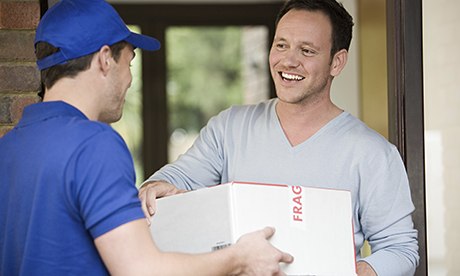
The Christmas shopping season is about to start in earnest. Shoppers are predicted to log in and check out in their droves, as they take advantage of retailers' discounts and give themselves plenty of time for goods to arrive before Christmas. But before you join the throng, read our guide to shopping online.
How do I stay safe online?
Under internet sales rules, websites should include the retailer's name, address and an email address, so alarm bells should ring if none of this information is available. You need to make sure there is a padlock symbol in the URL field – a padlock symbol that is on the page itself could indicate a fraudulent site. Also ensure the web address begins with https:// – the "s" standing for "secure".
The best way to avoid rogue sites is to do your research – internet forums are packed with people sharing their stories about bad service and goods that do not appear, so before you buy do a search on the name of the company.
Lots of banks now use Verified by Visa to offer an extra level of security if you are paying with a Visa card, or SecureCode if you have a Mastercard. You are asked for your card's security code and other details, which makes it harder for criminals to use your card fraudulently but doesn't offer any guarantees about the site you are using.
Even if you are shopping on a well-known, legitimate site you should be security conscious. Make sure your anti-virus software is up to date, do not use communal computers or Wi-Fi and create the strongest passwords you can. If a site gives you the choice to store your payment details or make a one-off purchase, you might want to opt for the latter.
If you are really worried, you could stick to sites that let you place an order but pay when you pick up an item in store – then at least you know you have secured the item you want. Lots of shops, including Argos, Waterstones and PC World offer this kind of reserve-and-collect service.
Do I have to use a credit card?
It is sensible to use one if you are ordering anything costing more than £100, because it gives protection that isn't afforded by a debit or prepaid card or PayPal. Under section 75 of the consumer credit act, the credit card provider is jointly liable if something goes wrong, so if you pay for an order with a company that goes bust before you get your delivery, you can claim your money from the credit card company.
Debit and prepaid card providers offer a voluntary protection scheme called chargeback which applies on sums of less than £100, but the cover is more limited. Don't ever pay with a cash transfer, however tempting the price you are being offered. If a company goes bust, or if it turns out that your goods don't actually exist, you will not be able to get your money back.
What if I change my mind?
If you have had an item made to your specification or personalised – for example, you have had someone's name put on a football shirt – you cannot get a refund if you change your mind. Otherwise, under the distance selling regulations you are allowed to cancel an order at any point from the day you place it up until seven working days from the day after it is delivered, but you should do so in writing, either with a physical letter or an email. You then need to return the goods.
You can't return a CD, DVD or computer game if you have broken the seal on the box, but with other goods retailers cannot insist items are returned in their original packaging – you are only obliged to make sure they are returned in reasonable condition. If it is something you have to get out of the package to check, that's acceptable.
The retailer's terms and conditions should tell you if you are responsible for paying to return an unwanted order, so check this before you press "buy". Retailers with a high-street presence will often let you take goods back to their stores, which can be much handier than queuing at the Post Office. If the retailer does not say who is responsible for paying, it will have to stump up the cost.
What if it doesn't come in time?
When you place an order the retailer should tell you when you can expect your goods to be delivered – if it doesn't, the distance selling rules assume it will be in a maximum of 30 days. If the retailer fails to deliver within the agreed time it must let you know and, if you decide you no longer want the order, it must refund you.
What if the goods never arrive?
If the items don't arrive you should complain to the retailer. If the seller disappears or refuses to help, contact your credit or debit card company and begin the process of claiming back your money.
Can I get an accidental bargain?
Online price glitches can lead to retailers offering goods at incredible prices, sparking a surge of consumers rushing to take advantage. Whether the retailer has to honour it depends on its terms and conditions – it can say that the contract is not deemed to have been entered into until it has sent out a confirmation email.
This means that even if you have placed the order and paid the "too good to be true" price, if it spots its mistake later it is within its rights to adjust the price to the correct sum. If the goods arrive at the low price, however, it is not allowed to chase you for the difference.
If an offer is too good to be true and you have never heard of the retailer in question, be very wary.

